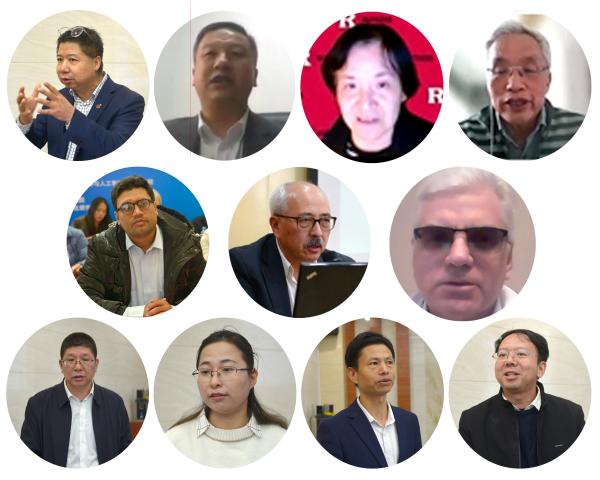Date:2024-12-06 Click:

On November 23rd, the School of Economics held an International Symposium on Digital Economy and Chinese-style Modernization. More than 40 faculty and student representatives from a number of Chinese and foreign institutions and research institutes, including Memorial University of Newfoundland, Chinese Academy of Agricultural Sciences (CAAS) , Rutgers University, Western Michigan University, Lincoln University, University of Sanya, St. Petersburg State University of Economics and Jiangxi University of Finance and Economics, etc., participated in the meeting online and offline.

Prof. Zhang Liguo, Dean of the School of Economics, delivered a speech on behalf of the School. He expressed his welcome and thanks to the participating experts and scholars, and briefly introduced their educational achievements, wished the conference to be held smoothly and the experts and scholars good luck and well-being.

Prof. Tao Fang of Memorial University of Newfoundland, elaborated on teleworking arrangements and their potential benefits in improving productivity and promoting innovation. Researcher Zhong Yu from the CAAS provided insights into a number of aspects of the technology sector and the agricultural market. Prof. Yanhong Jin from Rutgers University focused on the effectiveness and impact of investing in digital technologies and automation in the specific context of China. Prof. Weiqiao Huang from Western Michigan University analyzed the significance of the 2024 Nobel Prize in Economics, the US election, and other relevant factors for Chinese-style modernization. Associate Professor Hu Baiding of Lincoln University, shared the role and impact of scientific and technological progress on total factor productivity and the ways to promote its improvement. Dr. MUHAMMAD AFTABRAFIQ, University of Sanya, delved into the trans-formative impact of technology on traditional economic sectors, emphasizing China's pioneering role in the digital revolution. Zhang Liguo analyzed the synergistic development strategy in the green transformation and modernization of Chinese agriculture with the goal of harmonious symbiosis and modernized production. Associate Professor Cui Xinghua of the School of Economics provided an in-depth discussion on the reduction of pollution emissions from the manufacturing industry based on the memory growth model and the two-part model. Prof. Li Guomin, School of Economics, discussed in depth the two-sided impact of De-industrialization on the economy and the potential economic benefits and challenges of block chain institutional innovation. Dr. Lu Yang from the School of Economics used spatial econometrics with a two-threshold model to reveal the differences in the digital transformation of firms with different asset sizes.
This international conference has expanded the depth and breadth of the internationalization of the college, vigorously promoted the integration and mutual understanding of Chinese and foreign academics, and laid a solid foundation for the college to move towards internationalization, which is of important and far-reaching positive significance and excellent contribution.